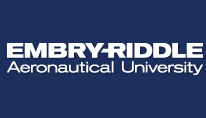T1-B: Influence of STEM Enrichment Activities on 3rd - 5th Grade Students' Engineering Identity
Start Date
5-3-2018 10:00 AM
Description
As 21st century skills like problem-solving, creativity, and innovation become central to the world of work, it is essential that students are in environments where they can develop those skills. Integrative STEM education models provide an environment to foster these types of experiences. The earlier we can immerse students in this environment, the more prepared they will be for the world. Outreach targeted at elementary after-school programs is a natural fit. This paper presents a pre-test, post-test quasi-experimental design study to examine the influence of an integrative STEM enrichment program on 3rd through 5th grade students’ identity in engineering. The Engineering Identity Development Scale (EIDS) was used to assess students’ engineering identity formation in the areas of academic identity and engineering career awareness. Findings showed engineering career subscale scores were significantly higher among students who participated in the after-school STEM enrichment program than those that did not.
T1-B: Influence of STEM Enrichment Activities on 3rd - 5th Grade Students' Engineering Identity
As 21st century skills like problem-solving, creativity, and innovation become central to the world of work, it is essential that students are in environments where they can develop those skills. Integrative STEM education models provide an environment to foster these types of experiences. The earlier we can immerse students in this environment, the more prepared they will be for the world. Outreach targeted at elementary after-school programs is a natural fit. This paper presents a pre-test, post-test quasi-experimental design study to examine the influence of an integrative STEM enrichment program on 3rd through 5th grade students’ identity in engineering. The Engineering Identity Development Scale (EIDS) was used to assess students’ engineering identity formation in the areas of academic identity and engineering career awareness. Findings showed engineering career subscale scores were significantly higher among students who participated in the after-school STEM enrichment program than those that did not.


